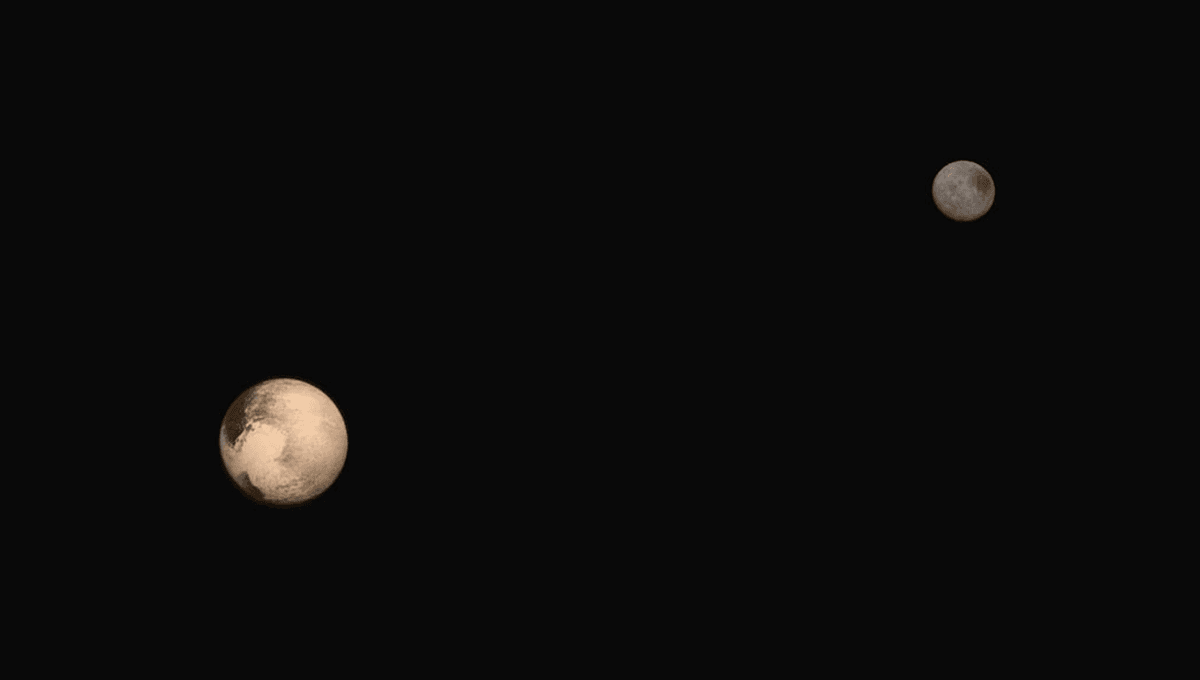
A team of astronomers has proposed a new definition of a planet ahead of the International Astronomical Union’s (IAU’s) General Assembly next month. Don’t hold your breath, Pluto fans.
As we learn more about the Solar System and beyond, our understanding of what constitutes a planet has changed. The classic example came in 2006 when the IAU downgraded Pluto to dwarf planet status as it did not meet all the updated criteria for what astronomers call a planet.
Though it orbits the Sun and has enough mass to make it into a nearly spherical shape (two requirements), it does not dominate its own orbit, as required by the updated definition. Pluto has not tidied up enough of its orbit of other space rocks to qualify, sharing its orbit with other large objects that do not orbit the dwarf planet as moons.
One major part of the definition of planets that will likely change is that it currently does not include exoplanets. Since the first exoplanet was found in 1992, we have discovered over 5,000 exoplanets.
“The current definition specifically mentions orbiting our Sun. We now know about the existence of thousands of planets, but the IAU definition applies only to the ones in our Solar System,” Jean-Luc Margot, professor of earth, planetary, and space sciences and of physics and astronomy at UCLA and lead author of the new paper, said in a statement. “We propose a new definition that can be applied to celestial bodies that orbit any star, stellar remnant, or brown dwarf.”
In the new definition, the team suggests that we ditch the requirement that planets be spherical, as this is currently difficult to ascertain with exoplanet observations. But mass can be measured much more easily, and so instead, the team proposes mass limits for what constitutes a planet. The lower limit is proposed at 1023 kg. Objects above 1023 kg tend to be spherical anyway, and the team argues that it would be helpful to move to more quantifiable definitions.
“Having definitions anchored to the most easily measurable quantity — mass — removes arguments about whether or not a specific object meets the criterion,” co-author Brett Gladman added. “This is a weakness of the current definition.”
The team, whose work is accepted for publication in the Planetary Science Journal but has not yet been peer-reviewed, places an upper limit of mass at 13 Jupiter masses. At this point, gas giants become substars known as brown dwarfs, as fusion of deuterium occurs in their cores.
The new definitions proposed by the team will be up for discussion at the IAU’s general assembly next month and are intended to start a more general discussion about the definition of what a planet is. Unfortunately for Pluto fans, it still does not qualify as a planet under the new proposed definition.
“All the planets in our Solar System are dynamically dominant, but other objects — including dwarf planets like Pluto, and asteroids — are not,” Margot added. “So this property can be included in the definition of a planet.”
The study is accepted for publication in the Planetary Science Journal, and is available to read on the pre-print server arXiv.
Source Link: Astronomers Are Attempting To Redefine What A Planet Actually Is